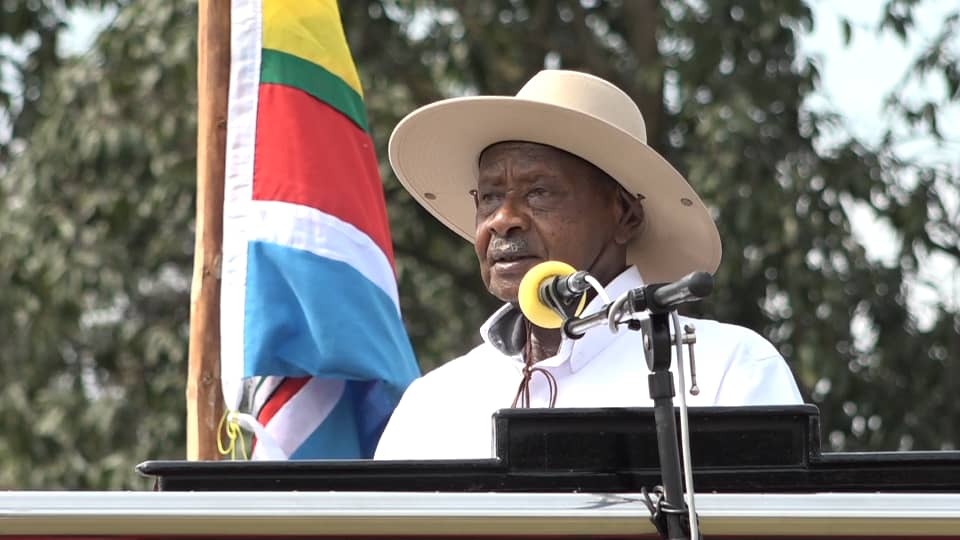Museveni Faces Tough Questions Ahead Of 2025 State Of The Nation Address

President Museveni today delivers the 2025 State of the Nation Address at Kololo Ceremonial Grounds, but unlike past speeches, this year’s event comes amid a deepening national reckoning over leadership transition, state accountability, and the future of Uganda’s democracy.
At the centre of this year’s address is a question that most Ugandans have already answered for themselves: who will lead Uganda after Museveni?
The speech will be delivered in fulfilment of Article 101(1) of the Constitution, which mandates the President to address the nation at the start of each session of Parliament.
But far from a formality, this year’s address presents a test of Museveni’s ability to reassure a restless population and defend his government’s record ahead of an increasingly competitive political climate.
In last year’s State of the Nation Address, President Museveni struck an optimistic tone, touting economic resilience, oil sector progress, and an improved security outlook.
He praised the Parish Development Model (PDM) and the Emyooga programme as revolutionary tools for transforming the economy from the bottom up.
But 12 months on, many of these promises remain mired in controversy, with questions lingering about transparency, implementation, and impact.
The 2024 address notably sidestepped the growing dissatisfaction in health and education. Underpaid teachers, broken public hospitals, and medicine stock-outs have persisted throughout the year.
With school dropout rates worsening, especially for girls, and the health sector crippled by frequent strikes, citizens will be looking for the President to move beyond platitudes and offer clear, actionable plans.
Economic hardship is expected to dominate this year’s speech. Inflation may have slowed from the highs of 2022–2023, but prices remain steep, and salaries stagnant. Bread, soap, rent, and fuel are beyond the reach of many Ugandans.
Public servants, especially civil society actors and mid-level professionals, endure deteriorating work conditions.
Youth unemployment remains alarmingly high, with even university graduates struggling to secure meaningful work. The disconnect between economic indicators and daily life is likely to be a central point of public critique if the President fails to address it.
The President is also under pressure to address the worsening security situation in the eastern DR Congo and South Sudan, two countries where the Uganda People's Defence Forces (UPDF) are actively engaged in securing interests.
Internally, growing political repression and crackdowns on dissent have alarmed both domestic opposition groups and international observers.
Human rights violations, including enforced disappearances and arbitrary arrests, remain an unresolved concern. The sticky issue of the trial of civilians in military courts is sore thumb in Museveni's government.
With civic space shrinking, opposition parties will be watching to see whether the President makes any concessions toward electoral reform or political dialogue ahead of the 2026 elections.
This year’s address also comes against the backdrop of mounting public anxiety over the question of presidential succession—arguably the most critical issue on Ugandans’ minds today.
While Museveni has long avoided naming a successor, many now interpret the increasingly assertive role of his son, Gen Muhoozi Kainerugaba, as an implicit signal of dynastic intentions.
Muhoozi’s frequent political posturing, erratic social media pronouncements, and growing visibility in state affairs have generated both domestic unease and international concern.
Tensions reached a new height recently when Uganda severed diplomatic ties with Germany, following accusations by the UPDF—under Muhoozi’s command—that the German ambassador, Matthias Schauer, was funding rebel activities.
The claim, which was not supported by public evidence, marked a rare and dramatic breakdown with a long-standing European partner, raising questions about military overreach and Uganda’s direction in foreign policy.
At 80, Museveni’s political longevity itself looms over the occasion. Although he remains firmly in control of state institutions, questions about succession, generational leadership, and internal NRM cohesion are gaining traction.
Younger Ugandans, especially those born after the bush war era, want more than historical lectures—they demand tangible, equitable progress.
Unlike 2024, when Museveni largely stuck to his script of economic transformation, this year’s address may be judged more on its realism than its ambition.
Whether he chooses to acknowledge public frustration or doubles down on the NRM’s ideological roadmap remains to be seen.
But with Parliament increasingly assertive and public patience thinning, the President will find it harder to rely solely on defiant rhetoric.
The 2025 State of the Nation Address is not just a constitutional ritual—it is a moment of reckoning.



0 Comments